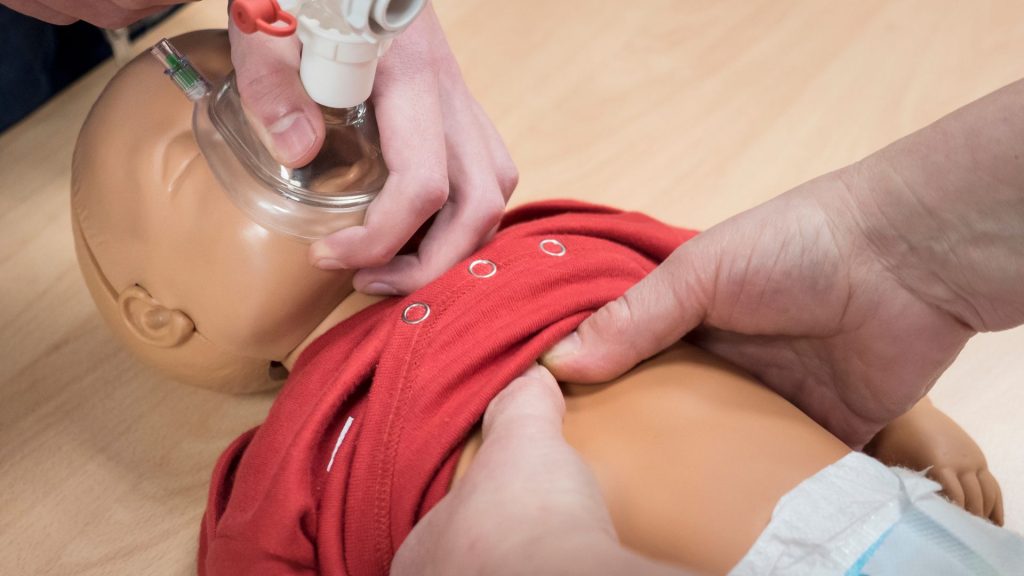In pediatric emergency care, the Pediatric Advanced Life Support (PALS) algorithms are more than guidelines—they are life-saving roadmaps. For healthcare professionals, staying updated on these protocols is not just an obligation but a responsibility that directly impacts patient outcomes. Changes in PALS algorithms reflect advancements in research and medical practice, ensuring interventions remain effective and evidence-based.
At CPR Nashville, an American Heart Association (AHA) training site, healthcare providers can learn the latest PALS updates through stress-free, hands-on courses tailored to both seasoned professionals and those new to the field. In this article, we’ll explore the most recent updates to the PALS algorithms, their significance, and how training with CPR Nashville equips participants with the skills to save lives.

Overview of PALS and Its Importance
PALS is an essential framework in pediatric emergency care, guiding healthcare providers through the rapid identification and treatment of life-threatening conditions in children. From airway management to cardiac arrest response, these algorithms ensure a systematic approach to emergencies, helping providers act with speed and precision. The effectiveness of PALS lies in its emphasis on evidence-based practices, which are continually refined to improve outcomes.
Accurate knowledge of PALS algorithms is critical. When followed correctly, these protocols can dramatically enhance the survival rates of pediatric patients. However, emergency scenarios demand more than theoretical understanding; healthcare providers must be confident in applying these guidelines under pressure. CPR Nashville addresses this need by offering hands-on training that emphasizes real-world application, ensuring participants can execute these life-saving techniques when it matters most.
Summary of Latest Changes in PALS Algorithms
The latest updates to PALS algorithms bring critical changes to three main areas: airway and breathing management, cardiac arrest management, and post-resuscitation care. These updates aim to enhance the effectiveness of interventions while minimizing the risks of adverse effects.
Airway and Breathing
In airway and breathing management, the revised guidelines refine ventilation rates to balance oxygen delivery with the prevention of hyperoxia and hypoxia. Maintaining proper oxygenation thresholds is vital, as both too little and too much oxygen can lead to complications. Additionally, updates to airway management techniques emphasize patient-specific approaches, recognizing the unique anatomical and physiological needs of pediatric patients. These changes help healthcare providers optimize respiratory support during critical interventions.
Cardiac Arrest Management
Cardiac arrest management has also seen important adjustments. New guidelines for drug dosages, timing, and defibrillation protocols aim to improve the precision and efficacy of these interventions. For instance, medication administration now incorporates evidence-based timing strategies to maximize effectiveness while reducing potential side effects. Defibrillation protocols have been updated to streamline rhythm analysis and shock delivery, enhancing the likelihood of successful resuscitation. These refinements are particularly crucial in high-pressure scenarios where every second counts.
Post-Resuscitation Care
Post-resuscitation care, often considered the final phase of emergency response, has received increased attention in the latest updates. The new recommendations focus on comprehensive monitoring and early interventions to address complications following cardiac arrest. This includes strategies to maintain hemodynamic stability, optimize ventilation, and support neurological recovery. By prioritizing post-cardiac arrest care, these updates emphasize the importance of a holistic approach to pediatric emergency management, extending the focus beyond immediate resuscitation.
Why the Updates Matter
Understanding why these updates matter is essential for appreciating their real-world impact. The continuous evolution of PALS algorithms reflects an ongoing commitment to improving patient outcomes. By integrating the latest research findings, these updates ensure that healthcare providers are equipped with the most effective tools and techniques. For example, refinements in ventilation and defibrillation protocols are designed to reduce errors, increase efficiency, and improve survival rates. Aligning clinical practice with these guidelines is not just about compliance—it’s about delivering the best possible care.
Participants at CPR Nashville frequently highlight the value of hands-on training in understanding and applying these updates. Through interactive scenarios and real-time feedback, learners gain practical experience that builds confidence and competence. Testimonials from past trainees underscore the importance of such training, particularly in mastering complex procedures like airway management and post-resuscitation care.
How CPR Nashville Helps You Stay Certified
CPR Nashville plays a pivotal role in helping healthcare providers stay certified and prepared. Their training programs are designed to be engaging, stress-free, and highly effective, catering to a wide range of professional needs. Whether you’re seeking initial certification or renewing an existing one, CPR Nashville’s courses ensure you’re equipped to handle pediatric emergencies with confidence. Their curriculum includes a variety of certifications, such as PALS, Basic Life Support (BLS), Advanced Cardiac Life Support (ACLS), and First Aid, all tailored to meet the latest AHA guidelines.
The process of certification with CPR Nashville is straightforward and supportive. Their instructors, experienced in both pediatric and adult emergency care, provide individualized guidance to ensure participants fully understand the material. By focusing on hands-on practice, CPR Nashville ensures that learners leave with practical skills that can be immediately applied in real-world situations.
Mastering the latest changes to PALS algorithms is not just about staying certified—it’s about being prepared to save lives. These updates enhance the effectiveness of interventions, ensuring that healthcare providers can deliver the highest standard of care in pediatric emergencies.
Conclusion
For those who haven’t yet updated their certifications or are new to PALS training, now is the time to act. CPR Nashville offers an opportunity to gain a comprehensive understanding of these critical protocols in a supportive and engaging environment. Don’t wait until an emergency arises—equip yourself with the skills and knowledge to make a difference.
Enroll in a PALS course at CPR Nashville today and take the next step in ensuring you’re prepared to respond effectively to pediatric emergencies. Every moment counts, and with the right training, you can be the difference between life and death.





